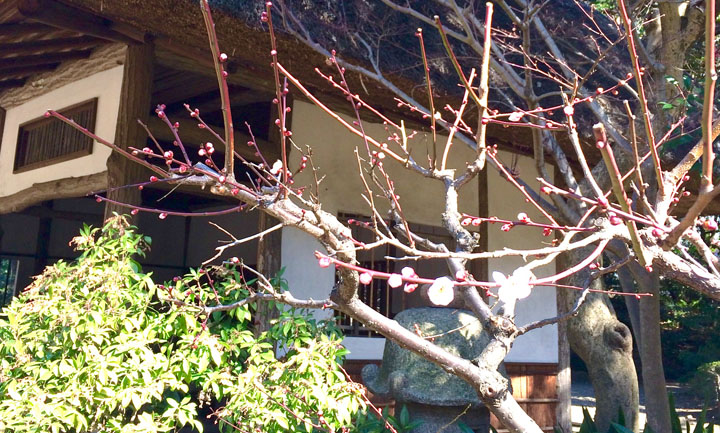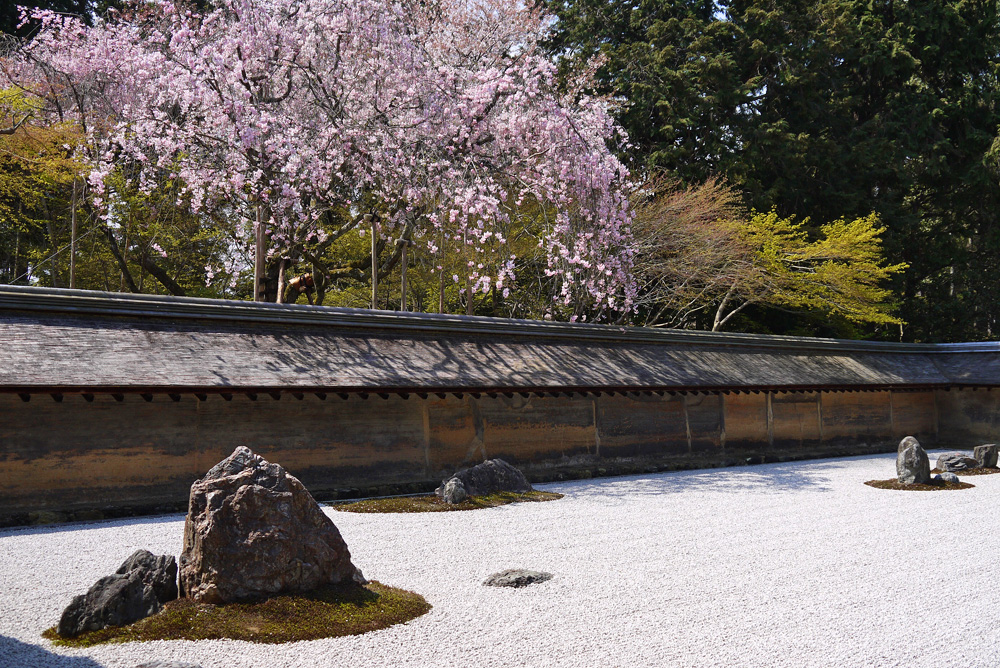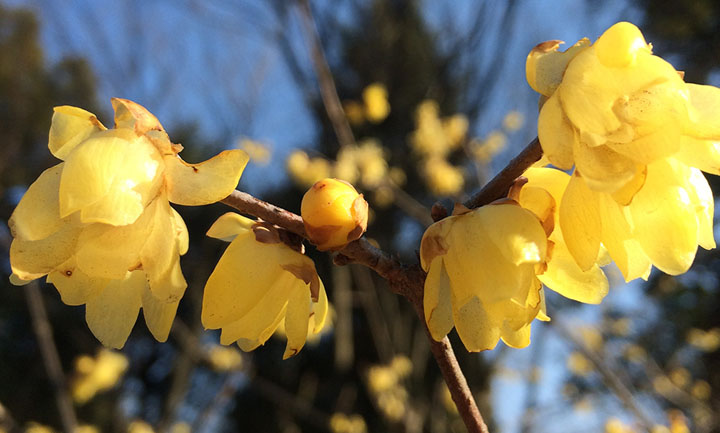2月、どこからともなく強めの甘い香りに包まれて、思わずそちらに歩くと日本庭園のそばにあった蝋梅(ろうばい)園からの芳香でした。
真冬の寒さの中、木が見えないところまで届く甘くフルーティな香りの力に幸福感で満たされます。
蝋梅の香りにはその華やかな香りと対照的に、防虫剤を思わせるツンとした「樟脳(しょうのう)」の香りが含まれています。樟脳の香りはどことなく古めかしくも懐かしい、おばあちゃんの家に遊びに行ったような気持ちにさせてくれます。そのため、「昭和の空間」を再現するのに使われることもあります。
蠟梅の花の香りは、甘さの中に樟脳の香りが含まれることで、ノスタルジックな奥深さがあります。こういった香りは自然の景観、材木を大切にした、歴史のある「和の建物」にとても合います。

趣のある和の建物に合う日本の香りといえば...
梅、柚子、夏みかん、ひば、ひのき、クロモジ、薄荷など。
和の香りは華やかさはないけれど、どれも優しい香りがします。
例えば、同じ品種である薄荷とペパーミントを嗅ぎ比べると、薄荷の香りは甘くて優く、ペパーミントはメントールの刺激が強く少し寒さをおぼえるほど。
和精油と言われるの和の香りは、西洋のものに比べると
「俺が!」「私が!」と主張しないのだとか。
なんだか、日本人みたいですね。
気候や風土が人だけでなく植物の性格も作るのでしょうか?
「おもてなし」や「粋」というイメージの空間にこういった優しい和の香りはよく合います。
日本家屋や古民家は天然素材を使って建てられており、現代の家屋には見られない落ち着きや味わいがあります。
日本庭園は海や川、移り行く四季の景観を繊細に表現しています。

自己主張しない優しい香りは、そんな細やかな日本庭園や日本家屋の魅力、そしてお迎えする人と「おもてなし」の心を全て1つにしてくれます。
和やか、人の和、温和、
日本の「和」に香りがそっと優しく寄り添ってくれているんですね。
----
A Welcome Spirit and Welcoming Aroma
During a walk back in February, we noticed a poignant sweet fragrance in the air. We followed the scent and found ourselves standing before an orchard of winter sweet flowers, next to a traditional Japanese garden.
In the dead of winter, the sweet and fruity scent came as a welcome surprise.
The sweetness as described in the name ‘winter sweet’ is accompanied by the sharper smell of camphor, which brings to mind an insect repellent. The scent of camphor has a nostalgic effect, reminiscent of a visit to Grandma’s house. It is often used when recreating a space that reminds gently of times past.
The presence of camphor is responsible for the profoundly nostalgic effect in the winter sweet flower, perhaps explaining its compatibility with historic Japanese architecture. Most classic Japanese buildings were made of long-lasting wood, created to complement its natural surroundings.
Other Japanese scents known to elevate the elegance of Japanese architecture include plum, yuzu citrus, natsumikan summer orange, hiba cypress, hinoki cypress, lindera umbellata, and Japanese mint.
Japanese scents are not the most flamboyant of fragrances, yet each possesses a subtle tenderness. Compare the Japanese mint and peppermint, for example. The two scents reside in the same family, yet Japanese mint is sweet and tender, while the menthol-heavy peppermint is pungent and cool.
Japanese scents, also called ‘Japanese essential oils’, are less assertive than many Western scents. This seems similar to the Japanese themselves, making us wonder if the environment affects the personalities of plants as much as people?
Japanese scents are helpful when designing a space to welcome guests in a subtle manner.
Old Japanese houses are built using all-natural materials (with all-natural scents), giving them a calming element not found in modern buildings.
The Japanese garden often expresses the sea and river, and views of the changing seasons throughout the year.
Subtle, non-brazen scents are effective in amplifying the “welcoming spirit” of the detailed and intricate Japanese garden and home.
Calm, harmony, and tranquility. Scents are a wonderful way to quietly complement such Japanese qualities.
